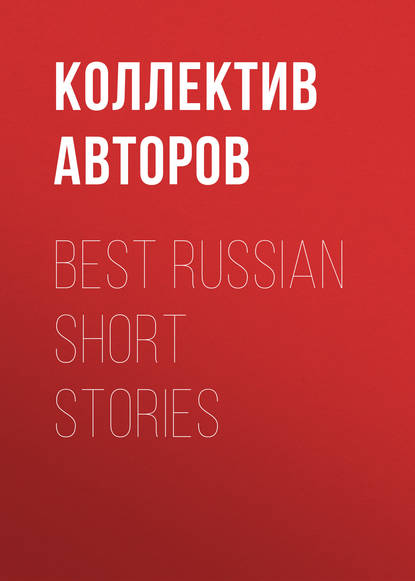По всем вопросам обращайтесь на: info@litportal.ru
(©) 2003-2025.
✖
Best Russian Short Stories
Настройки чтения
Размер шрифта
Высота строк
Поля
"So much the better if it's simple. But don't keep your wisdom from me. Tell me – why must one honour the gods?"
"Why. Because everybody does it."
"Friend, you know very well that not every one honours the gods.
Wouldn't it be more correct to say 'many'?"
"Very well, many."
"But tell me, don't more men deal wickedly than righteously?"
"I think so. You find more wicked people than good people."
"Therefore, if you follow the majority, you ought to deal wickedly and not righteously?"
"What are you saying?"
"I'm not saying it, you are. But I think the reason that men reverence the Olympians is not because the majority worship them. We must find another, more rational ground. Perhaps you mean they deserve reverence?"
"Yes, very right."
"Good. But then arises a new question: Why do they deserve reverence?"
"Because of their greatness."
"Ah, that's more like it. Perhaps I will soon be agreeing with you. It only remains for you to tell me wherein their greatness consists. That's a difficult question, isn't it? Let us seek the answer together. Homer says that the impetuous Ares, when stretched flat on the ground by a stone thrown by Pallas Athene, covered with his body the space that can be travelled in seven mornings. You see what an enormous space."
"Is that wherein greatness consists?"
"There you have me, my friend. That raises another question. Do you remember the athlete Theophantes? He towered over the people a whole head's length, whereas Pericles was no larger than you. But whom do we call great, Pericles or Theophantes?"
"I see that greatness does not consist in size of body. In that you're right. I am glad we agree. Perhaps greatness consists in virtue?"
"Certainly."
"I think so, too."
"Well, then, who must bow to whom? The small before the large, or those who are great in virtues before the wicked?"
"The answer is clear."
"I think so, too. Now we will look further into this matter. Tell me truly, did you ever kill other people's children with arrows?"
"It goes without saying, never! Do you think so ill of me?"
"Nor have you, I trust, ever seduced the wives of other men?"
"I was an upright tanner and a good husband. Don't forget that, Socrates, I beg of you!"
"You never became a brute, nor by your lustfulness gave your faithful Larissa occasion to revenge herself on women whom you had ruined and on their innocent children?"
"You anger me, really, Socrates."
"But perhaps you snatched your inheritance from your father and threw him into prison?"
"Never! Why these insulting questions?"
"Wait, my friend. Perhaps we will both reach a conclusion. Tell me, would you have considered a man great who had done all these things of which I have spoken?"
"No, no, no! I should have called such a man a scoundrel, and lodged public complaint against him with the judges in the market-place."
"Well, Elpidias, why did you not complain in the market-place against Zeus and the Olympians? The son of Cronos carried on war with his own father, and was seized with brutal lust for the daughters of men, while Hera took vengeance upon innocent virgins. Did not both of them convert the unhappy daughter of Inachos into a common cow? Did not Apollo kill all the children of Niobe with his arrows? Did not Callenius steal bulls? Well, then, Elpidias, if it is true that he who has less virtue must do honour to him who has more, then you should not build altars to the Olympians, but they to you."
"Blaspheme not, impious Socrates! Keep quiet! How dare you judge the acts of the gods?"
"Friend, a higher power has judged them. Let us investigate the question. What is the mark of divinity? I think you said, Greatness, which consists in virtue. Now is not this greatness the one divine spark in man? But if we test the greatness of the gods by our small human virtues, and it turns out that that which measures is greater than that which is measured, then it follows that the divine principle itself condemns the Olympians. But, then – "
"What, then?"
"Then, friend Elpidias, they are no gods, but deceptive phantoms, creations of a dream. Is it not so?"
"Ah, that's whither your talk leads, you bare-footed philosopher! Now I see what they said of you is true. You are like that fish that takes men captive with its look. So you took me captive in order to confound my believing soul and awaken doubt in it. It was already beginning to waver in its reverence for Zeus. Speak alone. I won't answer any more."
"Be not wrathful, Elpidias! I don't wish to inflict any evil upon you. But if you are tired of following my arguments to their logical conclusions, permit me to relate to you an allegory of a Milesian youth. Allegories rest the mind, and the relaxation is not unprofitable."
"Speak, if your story is not too long and its purpose is good."
"Its purpose is truth, friend Elpidias, and I will be brief. Once, you know, in ancient times, Miletus was exposed to the attacks of the barbarians. Among the youth who were seized was a son of the wisest and best of all the citizens in the land. His precious child was overtaken by a severe illness and became unconscious. He was abandoned and allowed to lie like worthless booty. In the dead of night he came to his senses. High above him glimmered the stars. Round about stretched the desert; and in the distance he heard the howl of beasts of prey. He was alone.
"He was entirely alone, and, besides that, the gods had taken from him the recollection of his former life. In vain he racked his brain – it was as dark and empty as the inhospitable desert in which he found himself. But somewhere, far away, behind the misty and obscure figures conjured up by his reason, loomed the thought of his lost home, and a vague realisation of the figure of the best of all men; and in his heart resounded the word 'father.' Doesn't it seem to you that the fate of this youth resembles the fate of all humanity?"
"How so?"
"Do we not all awake to life on earth with a hazy recollection of another home? And does not the figure of the great unknown hover before our souls?"
"Continue, Socrates, I am listening."
"The youth revived, arose, and walked cautiously, seeking to avoid all dangers. When after long wanderings his strength was nearly gone, he discerned a fire in the misty distance which illumined the darkness and banished the cold. A faint hope crept into his weary soul, and the recollections of his father's house again awoke within him. The youth walked toward the light, and cried: 'It is you, my father, it is you!'
"And was it his father's house?"
"No, it was merely a night lodging of wild nomads. So for many years he led the miserable life of a captive slave, and only in his dreams saw the distant home and rested on his father's bosom. Sometimes with weak hand he endeavoured to lure from dead clay or wood or stone the face and form that ever hovered before him. There even came moments when he grew weary and embraced his own handiwork and prayed to it and wet it with his tears. But the stone remained cold stone. And as he waxed in years the youth destroyed his creations, which already seemed to him a vile defamation of his ever-present dreams. At last fate brought him to a good barbarian, who asked him for the cause of his constant mourning. When the youth, confided to him the hopes and longings of his soul, the barbarian, a wise man, said:
"'The world would be better did such a man and such a country exist as that of which you speak. But by what mark would you recognise your father?'
"'In my country,' answered the youth, 'they reverenced wisdom and virtue and looked up to my father as to the master.'
"'Well and good,' answered the barbarian. 'I must assume that a kernel of your father's teaching resides in you. Therefore take up the wanderer's staff, and proceed on your way. Seek perfect wisdom and truth, and when you have found them, cast aside your staff – there will be your home and your father.'

















